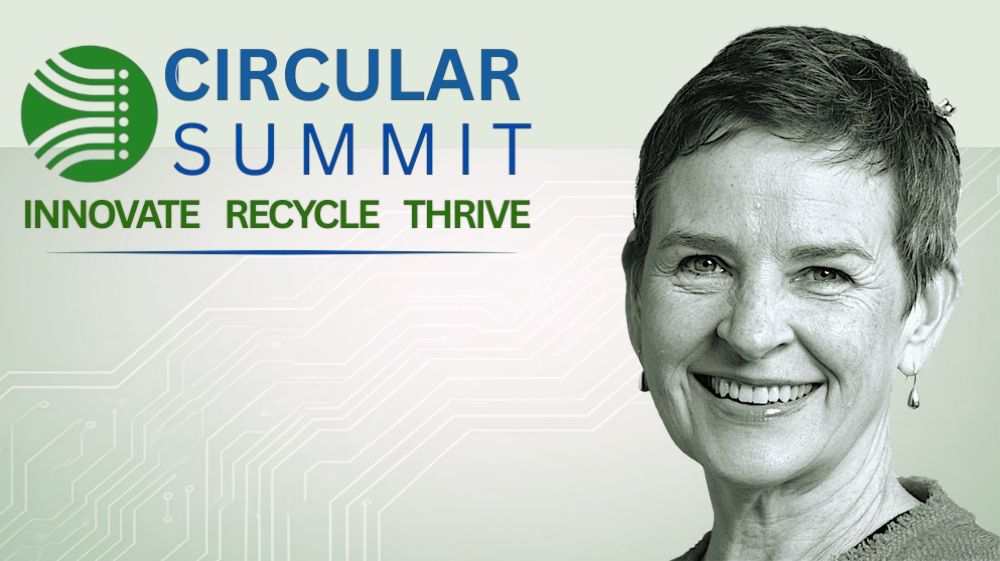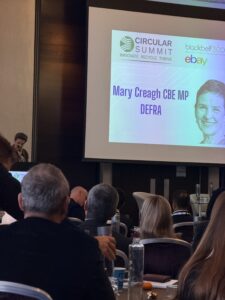Physical Address
304 North Cardinal St.
Dorchester Center, MA 02124
Physical Address
304 North Cardinal St.
Dorchester Center, MA 02124

There needs to be a united effort between government, business and communities to build a more circular economy.
So said Mary Creagh MP CBE, Parliamentary Under-Secretary of State (Minister for Nature) at the Department for Environment, Food and Rural Affairs, speaking at Mobile News Circular Summit conference in London yesterday.
She urged manufacturers to make circular their competitive edge rand retailers should offer more circular products and aftercare. Consumers needed embrace repair and reuse and investors should back the businesses building this new economy.”
“The circular economy is one of the great economic opportunities of our time. Early adopters will capture new markets, create jobs and lead the green economy. Circularity is not a fad, it’s a fundamental shift in how we create and sustain value.

“The choices we make today “will determine the health of our economy and the wellbeing of our planet for generations to come. We must redesign our systems to support sustainability, to reduce waste, and to empower people and communities” she told 200 delegates to the conference
Creagh said the country had “moved from promises to practical action,” with companies across key sectors now designing products for reuse and repair. “We’ve gone from talking about responsibility to actually implementing circular business models,” she said.
She praised innovators such as Dutch smartphone maker Fairphone for proving that repairability can be built into design. “I’ve broken an iPhone screen myself so I know how it feels when something small turns into a big expense.”

She recalled a meeting with Apple executives, noting: “They told me proudly they’d done a lot on circularity. I told them, ‘Yes, because governments pushed you to do it.’ Regulation drives innovation.”
The Minster described how the UK’s resource and waste strategy now embeds circular principles “through every stage of a product’s life from design to recovery.”
Reforms had already saved local authorities £1.4 billion a year. By next year she said every household in England will have consistent collections for paper, glass, metals, plastics, food waste, and garden waste.
The Extended Producer Responsibility policy has shifted the cost of waste from households to the businesses that create it, encouraging better product design and packaging. She also cited bans on single-use plastics and £13 million invested in food waste redistribution.
“The UK has seen a boom in re-commerce. eBay told me 40 per cent of their listings are now for refurbished or second-hand items.” She also praised E-Spares, noting that 270,000 customers had ordered parts this year to repair their own appliances “proof that people want to repair, they just need the tools and confidence.”
Creagh said government must lead by example. Defra had partnered with ATOS to create one of the UK’s largest digital circular procurement projects, ensuring products and services are designed for longevity.
“Public procurement is being reshaped to prioritise circular thinking from the very beginning,” she said.
“In England 1.5 million people are using refurbished laptops, tablets or smartphones provided through public sector partnerships. That’s circular economy in action.”